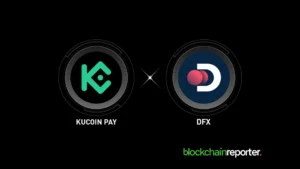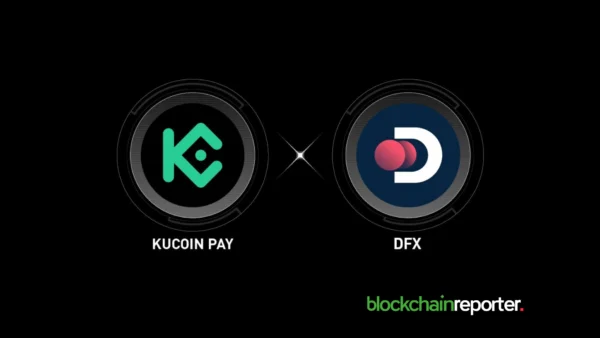
- 1. BlackRock Pursues Ethereum ETF Approval Amid Bitcoin ETF Endeavors
- 2. 47 Nations Embrace CARF for Automated Tax Information Sharing
- 3. Coinbase Faces Restrictions in Kazakhstan over Legal Violations
- 4. SEC Scrutinizes PayPal, Pioneer of Fintech Stablecoin
- 5. Binance and CEO Changpeng Zhao Admit Serious Charges in DOJ Plea Deal
- 6. Grayscale Takes Step Forward with Revised Bitcoin Investment Plan
- 7. Lawsuit Alleges Ronaldo and Binance Misled Investors in Securities Offer
The crypto landscape of November was a combination of challenges and opportunities. BlackRock, a major financial firm, applied for Ethereum-based ETF authorization, showing its growing interest in cryptocurrencies. On the other hand, 47 nations together implemented the Crypto-Asset Reporting Framework (CARF), supporting a uniform system for automatic tax information exchange. However, Kazakhstan imposed regulatory barriers on Coinbase for violating digital asset legislation, revealing cryptocurrency providers’ complex jurisdictional issues. PayPal’s stablecoin transaction prompted an SEC probe, showing how financial technology and digital assets regulations are developing. Binance and CEO Changpeng Zhao admitted serious claims, underscoring the regulatory climate affecting cryptocurrency players. In November, Grayscale’s Bitcoin investment growth and a lawsuit accusing Ronaldo and Binance of deception complicated the crypto plot.
BlackRock Pursues Ethereum ETF Approval Amid Bitcoin ETF Endeavors
BlackRock, a well-known asset manager, is seeking Ethereum-based ETF approval. This move follows the company’s ongoing Bitcoin ETF efforts. BlackRock achieved an important milestone with its S-1 submission to the SEC. The S-1 filing explains the “iShares Ethereum Trust.” ETF. This Delaware statutory trust aims to imitate Ethereum’s market performance.
BlackRock’s cooperation with Coinbase, a popular crypto exchange, is remarkable. Ethereum ETF will be safe and dependable with Coinbase as its custodian. The SEC must approve the S-1 application to launch the Ethereum ETF, giving investors a new way to invest in this popular digital asset.
47 Nations Embrace CARF for Automated Tax Information Sharing
47 countries, including the US, the UK, France, Japan, Singapore, Brazil, Canada, South Korea, and Switzerland, have embraced the Crypto-Asset Reporting Framework (CARF), a historic milestone. This collaboration advances the global standard for automated tax agency information sharing. The pledge requires each nation to quickly incorporate CARF into its legal systems to enable its 2027 launch.
Nearly 50 national governments pledged to quickly implement CARF into their legal frameworks on November 10. This joint statement simplifies and optimizes automated information sharing between tax agencies worldwide to promote tax compliance. The OECD’s 2022 CARF framework, developed in response to a G20 directive in April 2021, mandates reporting on cryptocurrency and digital asset transactions. Signatories expect information-sharing agreements to commence by 2027 to improve tax compliance and deter evasion.
Coinbase Faces Restrictions in Kazakhstan over Legal Violations
The Kazakhstan Ministry of Culture and Information made a statement on Coinbase, the second-largest crypto exchange, being restricted. The Ministry explains that Coinbase’s crypto trading was found to violate the nation’s digital asset laws, resulting in restrictions. The limitation stems from Kazakhstan’s Digital Asset Law Article 11. The Kazakhstan Ministry of Digital Development, Innovation, and Aerospace Industry requested the restriction under paragraph 5 of Article 11, according to the Ministry of Information. The law prohibits unsecured digital asset issuance, circulation, and trade outside the Astana International Financial Centre.
The AIFC allows Kazakhstan-licensed cryptocurrency exchanges such as Binance, CaspianEx, Biteeu, ATAIX, Upbit, Xignal&MT, and Bybit. The Astana Financial Services Regulatory Committee licenses these exchanges. The Communications Act allows internet service providers to block websites with illegal information or conduct, including Coinbase.
SEC Scrutinizes PayPal, Pioneer of Fintech Stablecoin
PayPal, a major worldwide payment company, has been subpoenaed by the SEC for selling a stablecoin valued in U.S. dollars. PayPal pioneered digital currency use in August, a major financial industry milestone. This fintech company took a risk by launching its stablecoin, becoming the first major player.
Stablecoins connect the volatile realm of cryptocurrency to the stability of traditional assets. These digital tokens are designed to retain a stable value connected to a trustworthy asset like the U.S. dollar. This strategic cooperation lets investors into cryptocurrencies without the volatility of other digital currencies. PayPal’s move into digital currency shows financial and digital assets merging. However, the SEC subpoena shows continued regulatory hurdles.
Binance and CEO Changpeng Zhao Admit Serious Charges in DOJ Plea Deal
Binance and its charismatic CEO, Changpeng Zhao, have admitted to several serious claims, which is shocking. In an extraordinary plea bargain with the US Department of Justice (DOJ), the allegations include AML and US sanctions crimes. Binance faces a $4.3 billion penalty, while Zhao faces $200 million. Zhao resigned as CEO as part of the settlement.
Binance was accused of failing to monitor and report suspicious transactions, including those linked to international terrorist groups, according to court filings. Iranian consumers used Binance to transact over $890 million under US financial sanctions. The exchange allowed US customers to interact with Cuba, and Syria and illegally seized Ukraine.
Grayscale Takes Step Forward with Revised Bitcoin Investment Plan
Grayscale is making considerable Bitcoin investment progress, and its latest move has gained attention. It recently submitted a revised Bitcoin exchange-traded fund proposal after SEC consultations. Grayscale’s ongoing effort to launch a Bitcoin ETF includes this minor revision. This regulated and publicly traded financial product lets anyone invest in Bitcoin.
Bloomberg researcher James Seyffart revealed recent Grayscale filing information. A novel change is proposed to change their product’s ticker sign from GBTC to BTC. This is part of Grayscale’s strategy to increase product exposure and investor access. Grayscale is creating a new Bitcoin investment approach. Their techniques are being adjusted to improve accessibility and user-friendliness for all potential players.
Lawsuit Alleges Ronaldo and Binance Misled Investors in Securities Offer
Ronaldo and Binance were accused of scheming in the “promotion, assistance, and active participation in the offer and sale of unregistered securities. The complaint claims Binance tricked investors into buying unregistered securities through its collaboration using Ronaldo’s fame.
The lawsuit suggests that Binance buyers of Cristiano Ronaldo NFTs were more likely to invest in unregistered securities like BNB coin and cryptocurrency yield schemes. The legal dispute arose one week after Binance founder Changpeng “CZ” Zhao admitted to multiple transgressions, while FTX founder Sam Bankman-Fried was convicted of fraud a month earlier. Ronaldo, using his “investment acumen,” should have known about Binance’s unregistered cryptocurrency assets, the lawsuit claims, and he concealed crypto endorsement profits.








